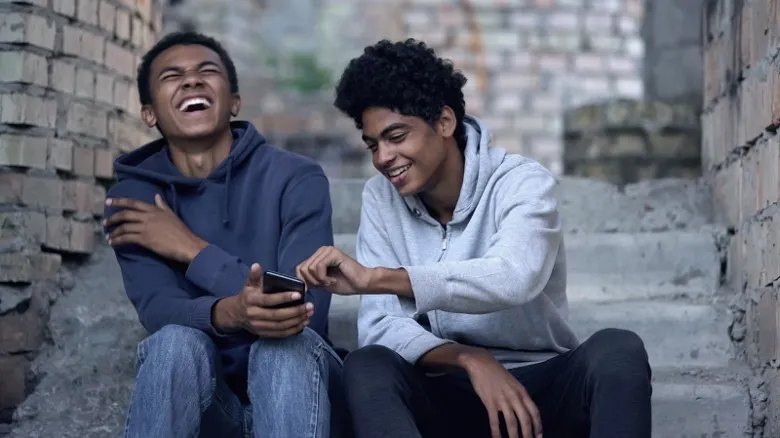
Exploring the protective nature of peer relationships
We understand the important role peers play in young Londoner’s lives. We are committed to harnessing the positive power of peers – not just focusing on the negatives. Here. Head of Development Carly Adams Elias discusses her research, which looks at the themes of love and protection within in peer relationships and how this can inform practice and delivery.
It’s essential to have a support system that can help us cope with the challenges we face.
The other day I heard a woman talking about her experience of divorce and how we all need our own group of Spice Girls around us for when we’re going through tough times. We need a Scary Spice to fight our corner, a Baby Spice to scoop us up and give us comfort, a Ginger Spice to tell us with all their sass and assertiveness when we need to get over ourselves, a Sporty Spice to pick us up and get us out of the house, and a Posh Spice to get us in our party clothes and out for a dance.
I couldn’t agree more. I credit a lot of the success in my life to the strength of my friendships. My friends have made me laugh, they’ve danced with me, they’ve wiped away my tears, they’ve taught me so much and seen things in me that I never could.
They have loved me, encouraged my growth and been my biggest cheerleaders. They’ve kept me safe, when at times I haven’t been, physically or emotionally. I know how powerful friends can be, both now as an adult but also looking back to my teenage years (which as you can probably tell by the Spice Girls reference was quite a few years ago).
As we enter adolescence, we begin to form our own identities, establish our place in society, and navigate the challenges of growing up. During this phase of life our support system is often provided by our friends, who can be instrumental in safeguarding our physical safety and emotional wellbeing.
The importance of friendship in safeguarding adolescents is evident in many ways. Studies have shown that strong social networks and positive relationships with friends can enhance an adolescent’s self-esteem, confidence, and resilience, and help them cope with stress and anxiety. Adolescents who feel connected to others and have a sense of belonging are less likely to experience social isolation, depression, and other mental health issues.
However, as we all know too well, not all friendships are created equal, and not all peer relationships are safe. There can be a darker side to adolescent friendships, which can result in bullying, exclusion, and other forms of peer abuse. This can have long-term effects including mental health issues, lower academic performance, and decreased self-esteem. Therefore, it is essential to understand the different types of friendships and the role they can play in safeguarding adolescents.
In relation to exploitation and violence, peer relationships have largely been examined through the criminological lens of peer deviance or in relation to risk, as opposed to a safeguarding lens of protection and safety. Research suggests that this has led to the increased surveillance and criminalisation, which disproportionately impacts marginalised children and young people.
Understanding the role of peer relationships as potentially protective for children and young people exposed to extra-familial harm is a relatively new area of research and practice in the UK and internationally. There is an urgent need to respond differently, in ways which do not risk continued surveillance, and potential criminalisation, of children and young people experiencing harm. Moreover, reliance on research which offers explanations of peer relationships through a lens of delinquency, deficit and risk could contribute to criminalising the nature of peer relationships or pathologizing friendships in contexts of exploitation and violence.
When we know positive experiences of friendship can have such a powerful impact shouldn’t we start thinking about how we can best support children and young people to create safety in their peer groups, rather than separating them and hoping for the best?

Reframing peer relationships as a source of safety rather than risk is one underexplored way to achieve this. To challenge this risk-focussed lens on friendships and peer relationships I have decided to undertake post graduate research to explore these issues. Working under supervision of Dr Hannah King and Professor Carlene Firmin one of the leading academics on social care responses to young people and extra-familial harm, I will be focussing specifically on the themes of love and protection in supporting a strength-based approach to assessing and responding to peer relationships.
Safer London will be a collaborative partner in this research. The ambition is to develop a co-produced piece of research with children and young people who are impacted by exploitation and violence, and who are so often excluded from knowledge generation. Their voice and experience will help shape the design and delivery of the research to help us to better understand the role peer relationships can play in safeguarding adolescents and hopefully tip the lens towards more strength-based safeguarding practice with peers.
Carly Adams Elias, Head of Development
Discover who we are and what we do
CLICK HERE